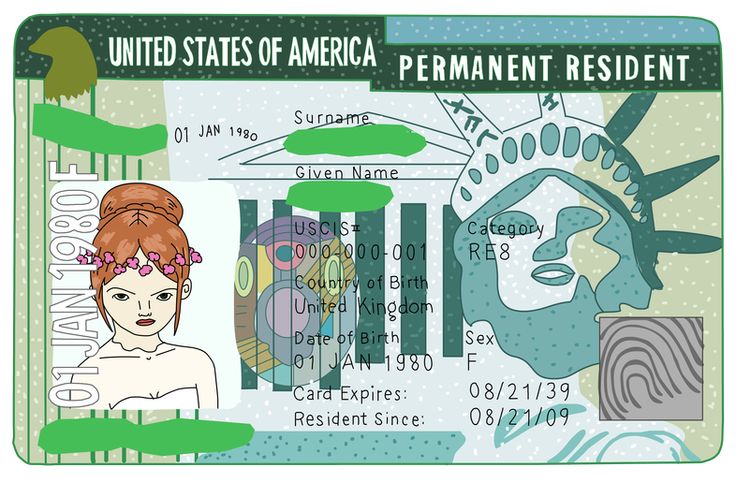What Happens When Your Green Card Is Expired More Than Two Years?
1. Loss of Lawful Permanent Resident (LPR) Status
While holding a green card means you are a lawful permanent resident, an expired green card does not automatically mean you lose your status. However, it can cause issues with re-entry, employment verification, and applying for citizenship.
Important:
Your status as an LPR remains intact unless USCIS or Customs and Border Protection (CBP) determine otherwise. The expiration mainly affects your ability to prove your status and carry out immigration-related activities.
2. Travel Challenges
Traveling outside the U.S. with an expired green card can be problematic. CBP officers at the border may refuse entry or delay re-entry if your card is expired. For travel, you may need to apply for a boarding foil or advance parole to re-enter legally.
3. Difficulty in Renewing or Replacing Your Green Card
If your green card has been expired for over two years, renewing it isn’t straightforward. USCIS typically requires you to apply for a new green card as a first step, which may involve re-establishing your eligibility.
4. Potential for Losing Eligibility for Naturalization
An expired green card can delay or complicate your application for U.S. citizenship. USCIS requires proof of lawful permanent residence, and an expired card may raise questions about your continuous residence and good moral character.
What Are Your Legal Options?
If your green card has been expired for over two years, don’t panic. There are several options depending on your circumstances:
1. Renewal of Your Green Card
If your green card expired within the last year or two, you might still be eligible to file for renewal by submitting Form I-90 (Application to Replace Permanent Resident Card). However, this process is more complicated if the card has been expired for more than two years.
Key Point:
USCIS generally discourages simply renewing a green card that has been expired for more than two years. Instead, you may need to apply for a new green card through a different process.
2. Applying for a New Green Card (Re-Entry Permit)
In cases where the green card has been expired for over two years, USCIS may treat your case as a new application for permanent residence. You will need to:
- File Form I-485 (Application to Register Permanent Residence or Adjust Status) if you are in the U.S. and eligible.
- Re-establish your eligibility for permanent residence, which may involve submitting new supporting documents and possibly attending an interview.
Note:
If you have maintained continuous residence and meet other requirements, you might be eligible for a renewal of your status after this process.
3. Applying for a Returning Resident Visa (SB-1)
If you left the U.S. and your green card expired over two years ago, and you believe you have maintained ties to the U.S., you might qualify for re-entry as a returning resident by applying for an SB-1 visa at a U.S. consulate abroad.
Requirements for SB-1 Visa:
- Previous Lawful Permanent Resident Status:
You must have been a lawful permanent resident (green card holder) at the time you left the U.S. - Extended Absence Beyond Allowed Period:
You were outside the U.S. for more than one year or beyond the validity of your re-entry permit, and your absence was not authorized or planned. - Maintained Ties to the U.S.:
You must demonstrate that you maintained ties to the U.S., such as owning property, having family members, paying taxes, or other evidence showing your intention to return and reside permanently in the U.S. - No Abandonment of Residency:
You must prove you did not abandon your permanent residence in the U.S. during your time abroad. This involves evidence showing you intended to return and maintain U.S. residency. - Eligibility to Re-enter as a Lawful Permanent Resident:
You must establish that your prolonged stay outside the U.S. was due to circumstances beyond your control, such as illness, employment, or family emergencies, and not because you intended to relinquish your permanent residence. - Application at a U.S. Consulate:
You must apply for the SB-1 visa at a U.S. consulate or embassy abroad, submitting the required documentation and attending an interview.
Supporting Documents Typically Needed:
- Proof of your original green card (copy or original).
- Evidence of your prior U.S. residence and ties (tax records, property ownership, family ties).
- Evidence explaining the reason for your extended absence.
- Evidence showing your intent to return and reside permanently in the U.S.
- Evidence of your lawful status at the time you left the U.S.
Note:
The burden of proof is on the applicant to demonstrate that their absence was beyond their control and that they maintained ties to the U.S. during their time abroad.



